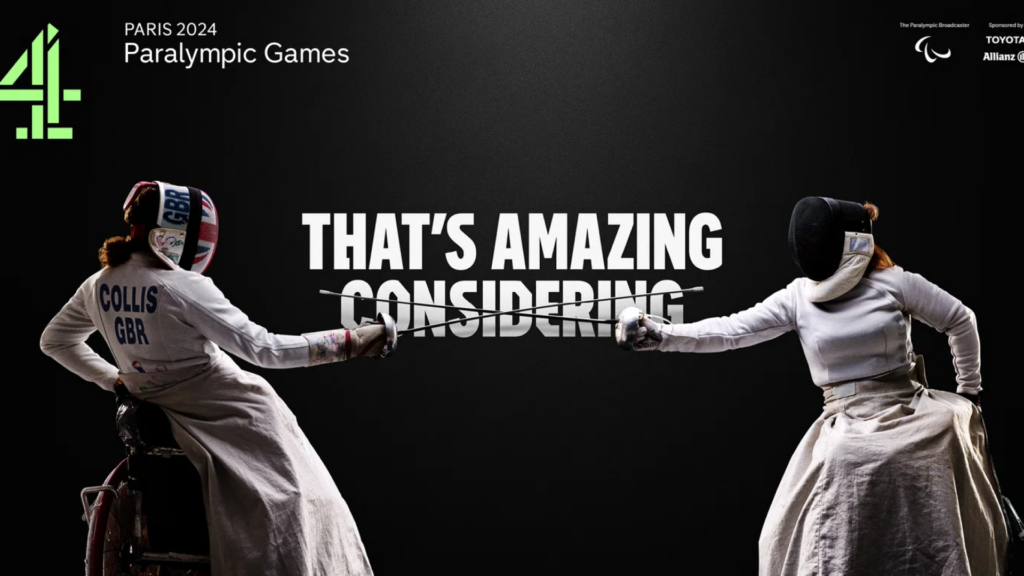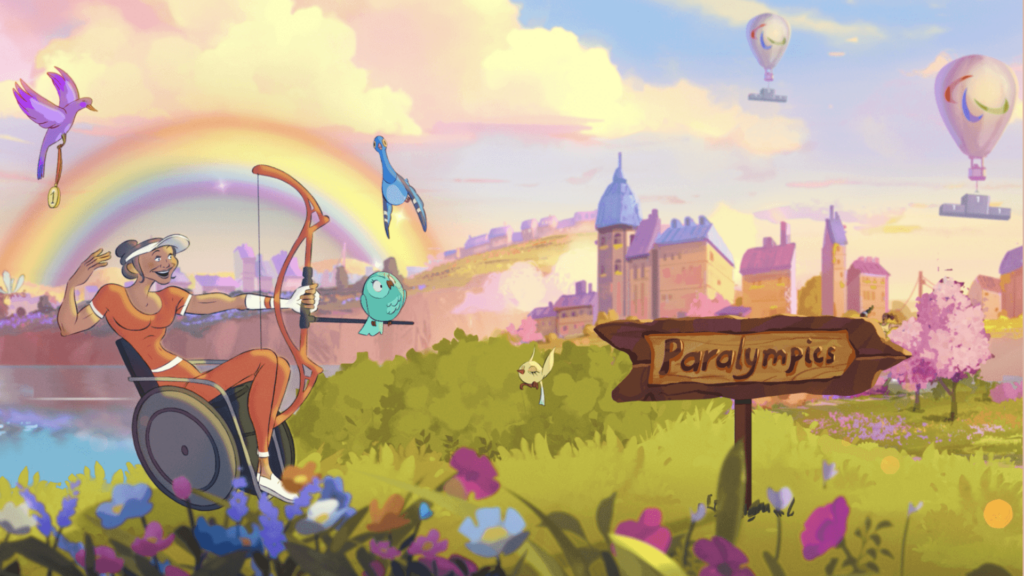Diversity, Equity & Inclusion and Mental Health at 2024 Paris Games
Tags: Ad Campaign, Awareness, DE&I, Defy Stereotypes, Health, Mental Health, Olympics, Sparks Conversation, Sports.
As seen in other Olympics and Paralympic Games editions, brands are using the event to reinforce DE&I messages and try to defy stereotypes in campaigns.
This year, mental health is also taking center stage at Paris 2024. Following Simone Biles’ high-profile withdrawal from the Tokyo Olympics, the Games are prioritizing athlete well-being. Organizers have introduced mental health resources, including mindfulness programs and support networks, to address the increasing pressure on athletes.
The International Olympic Committee launched a mindfulness program, giving athletes licenses to the Calm meditation application; a mental fitness helpline; a “mentally fit zone” for athletes to decompress; and support to any competing athlete in more than 70 languages for four years following the games. Organizers used an AI tool to weed out abuse online.
We selected some of the most creative campaigns to share with you in this weekly edition.
Case 1
Considering What ? (UK)
As part of a long term continuous effort, Channel 4 aims to redefine public perception of Paralympic athletes as world-class competitors, not simply individuals overcoming disability. Their “Considering What?” campaign highlights the athleticism of Paralympians by showcasing their battles against fundamental forces like gravity.

The campaign is the first since Channel 4 won the UK broadcast rights to the Paralympics which will not feature the term ‘Superhumans’.
Supporting the TV campaign is a nationwide out of home campaign, where well-meaning but patronizing phrases are corrected by the physicality of the Paralympic sports themselves.
Case 2
The Paralympic Dream (Global)
The campaign aims to redefine public perception of the Paralympics, shifting focus from a heartwarming spectacle to a high-stakes athletic competition.
The striking 60-second TV spot dramatically contrasts a saccharine, idealized vision of the Paralympics with the raw intensity of elite sports. By juxtaposing a whimsical animated world with the gritty reality of Paralympic competition, the campaign challenges long-held misconceptions and celebrates the extraordinary athleticism of Paralympic athletes.

Featuring British Paralympic taekwondo athlete Amy Truesdale, the ad delivers a powerful message: “They’re not playing games.” The campaign will be rolled out globally across TV, online, and social media in the lead-up to the Paris 2024 Paralympic Games. This bold initiative is part of a broader effort to drive global viewership and recognize the Paralympics as a premier sporting event.
Case 3
Pause is Power (US)
Powerade, a Coca-Cola-owned sports beverage, has developed a global campaign featuring gymnast Simone Biles that is focused around supporting athletes’ mental and physical well-being during the Olympics.
The intriguing aspect here is the effective use of contrasts. The Powerade campaign stands out by subverting expectations in a clever manner, without losing the core message. Instead, it reinforces the brand’s credibility. The ad delivers a powerful message, but when it suggests that a pause is needed to maintain that strength, the idea resonates completely.
Powerade is striving to further the conversation among athletes around mental and physical well-being with its latest campaign, an effort that builds on parent company Coca-Cola’s nearly 100 years of partnership with the Olympic games. The integrated effort represents the latest evolution of Powerade’s “Pause is Power” platform, which was launched in 2022 to champion the benefits of taking deliberate pauses as needed to come back stronger.

Tied to its efforts, the brand also unveiled Powerade Gold, a beverage designed specifically for the Paris Olympic and Paralympic Games. The new flavor features a blend of golden fruits formulated to deliver an energizing and refreshing taste.
Powerade also created a bespoke Olympic Village experience in collaboration with the International Olympic Committee (IOC). The experience offered an environment for physical recovery, respite and innovative virtual visualization practices while also offering a space for mental health conversations.
Key Takeaways:
our cut ABBOVE
We saw
Increased emphasis on DE&I in Paralympic campaigns with innovative use of storytelling and visuals to challenge stereotypes.
Mental health taking center stage as a priority for athletes with strong focus on athlete well-being and recovery.
We learned that
The importance of a more holistic approach to athlete and consumer well-being.
The potential of sports as a platform for social change.
This encourages us to
Create campaigns that celebrate diversity and inclusion.
Partner with athletes and sports organizations for authentic collaborations.
Triggers for innovating
What if we develop a platform where athletes from diverse backgrounds can share their inspiring journeys of overcoming health challenges, empowering and motivating others?
How can we foster a culture of open dialogue and support around mental health in the sports world?
How might we incorporate mental health education into coaching and athlete development programs?
What if we partner with organizations focused on DE&I and mental health to create impactful campaigns?
How might we develop a standardized framework for measuring progress in DE&I and mental health within the sports industry?
What if we create a global network of athletes advocating for DE&I and mental health awareness counting with sports ambassadors?
ABBOVE TEAM